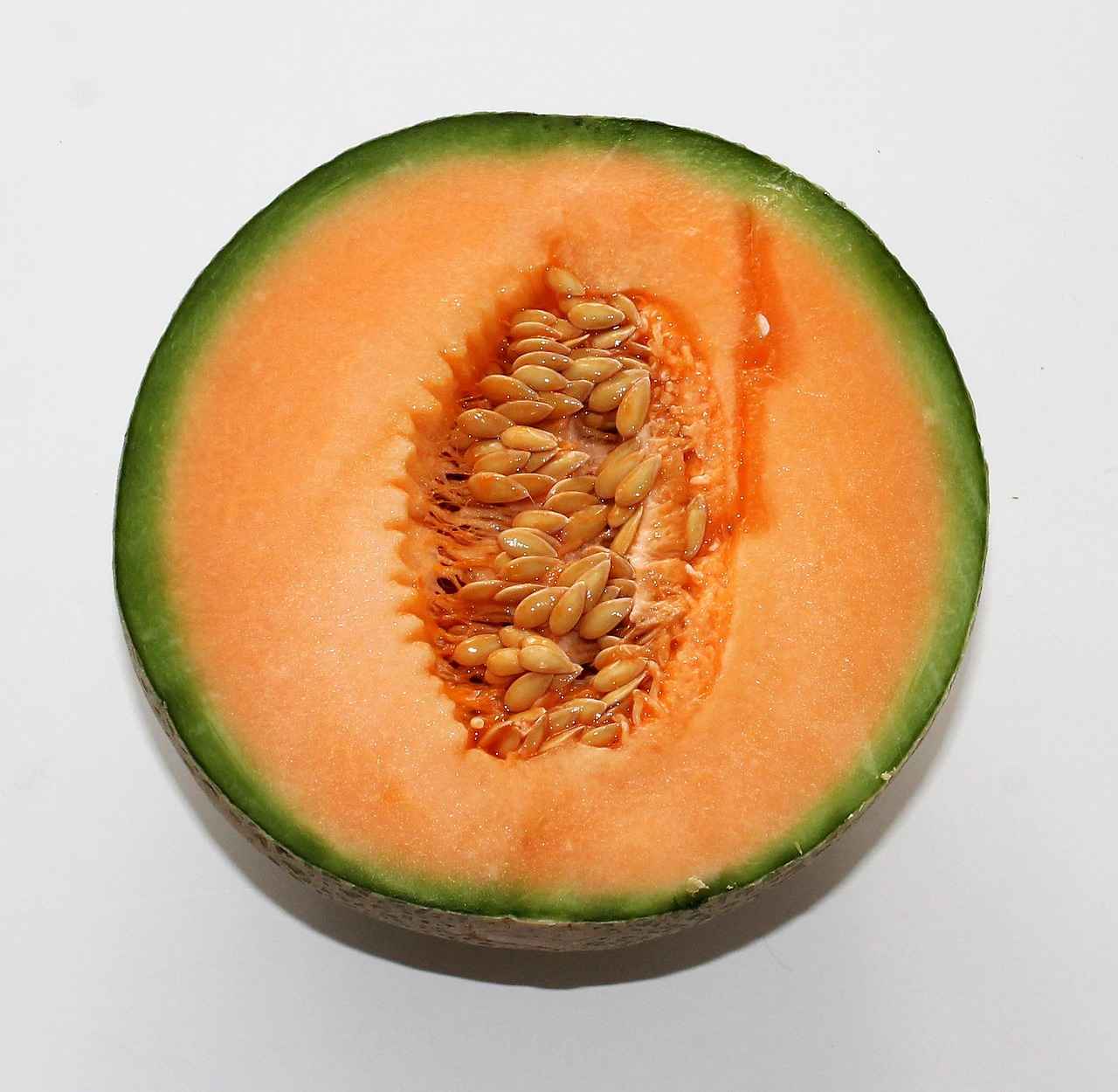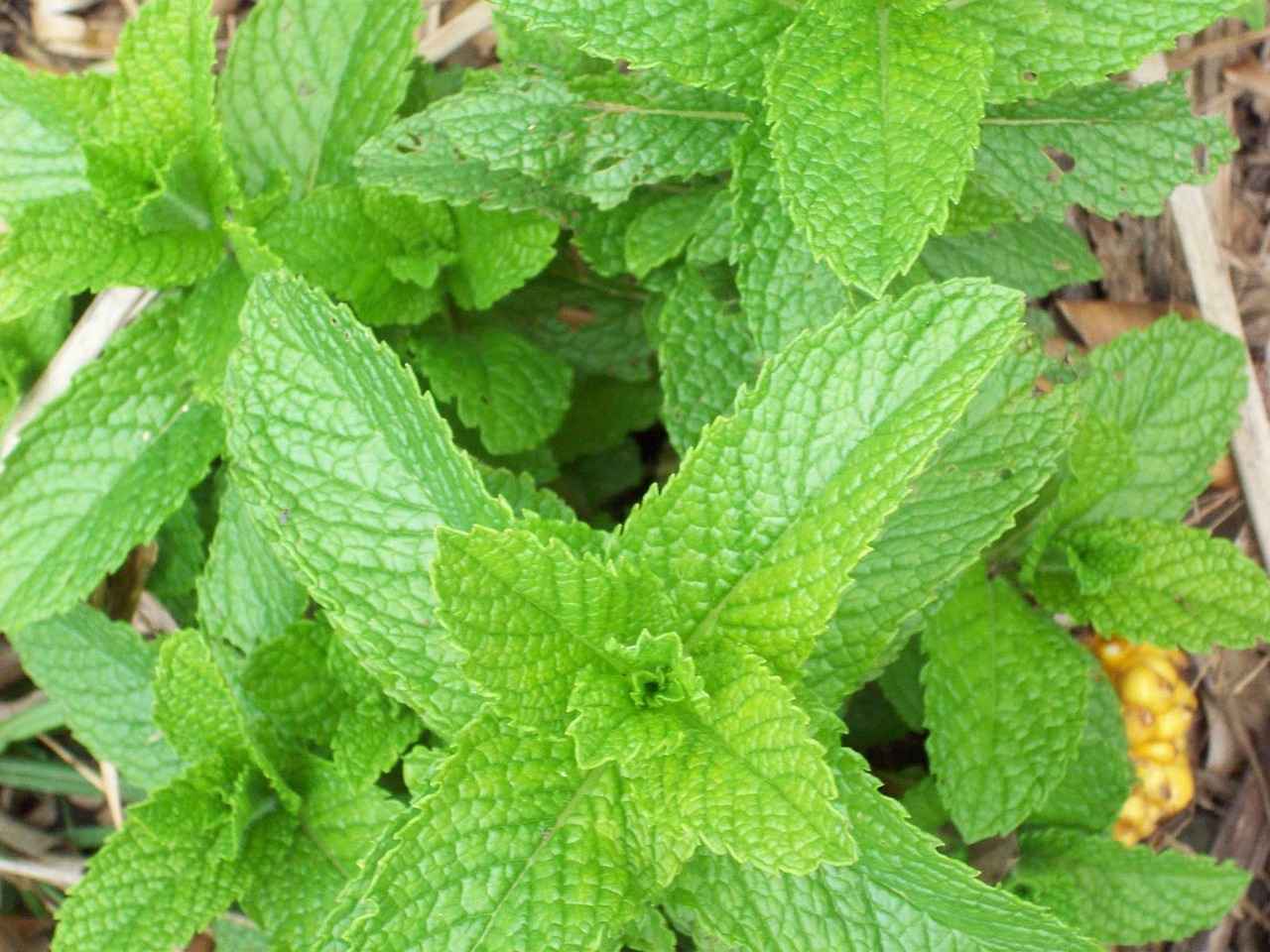This article delves into the numerous benefits of bitter melon, particularly in managing blood sugar levels. It will explore its nutritional profile and provide practical ways to incorporate this unique fruit into your diet for enhanced health.
What is Bitter Melon?
Bitter melon, scientifically known as Momordica charantia, is a tropical fruit celebrated for its distinct flavor and medicinal properties. Traditionally, it has been utilized in various cultures to help manage diabetes and regulate blood sugar levels.
Nutritional Profile of Bitter Melon
Bitter melon is not only low in calories but also packed with essential nutrients. It contains:
- Vitamins: A, C, and several B vitamins
- Minerals: Potassium, magnesium, and iron
These nutrients contribute significantly to its health benefits.
How Bitter Melon Affects Blood Sugar Levels
Research indicates that bitter melon may possess a hypoglycemic effect, aiding in lowering blood sugar levels and enhancing insulin sensitivity. This makes it a potential ally for individuals with diabetes.
Mechanisms of Action
The active compounds in bitter melon, such as charantin and polypeptide-p, are believed to facilitate glucose uptake in cells, effectively reducing blood sugar levels.
Incorporating Bitter Melon into Your Diet
Integrating bitter melon into your meals can be both simple and enjoyable. Here are some cooking methods:
- Sautéing
- Stir-frying
- Adding to soups and stews
These techniques can help diminish its bitterness while preserving its nutritional value.
Potential Side Effects of Bitter Melon
While generally safe for consumption, bitter melon may cause side effects in some individuals, particularly when consumed in large quantities. Possible reactions include:
- Allergic reactions, such as skin rashes
- Gastrointestinal discomfort
It’s advisable to consult a healthcare professional before adding bitter melon to your diet, especially for those on diabetes medications.
Conclusion: The Promise of Bitter Melon for Blood Sugar Management
In summary, bitter melon presents a promising natural option for managing blood sugar levels. As a nutritious addition to a balanced diet, it may offer valuable health benefits, particularly for those aiming to enhance their metabolic health.

What is Bitter Melon?
Bitter melon, scientifically known as Momordica charantia, is a tropical fruit that has gained significant recognition for its distinct flavor and remarkable health benefits. This fruit is particularly esteemed in various traditional medicinal practices, especially for its potential role in managing diabetes and regulating blood sugar levels.
Bitter melon, often referred to as bitter gourd or karalla, is a unique fruit that is characterized by its bumpy skin and bitter taste. It is widely cultivated in tropical and subtropical regions around the world, including Asia, Africa, and the Caribbean. The fruit is not only a culinary ingredient but also a vital component of traditional medicine, particularly in countries like India and China, where it has been used for centuries to treat various ailments.
This fruit is low in calories yet packed with essential nutrients, making it a healthy addition to any diet. Bitter melon is a rich source of vitamins such as vitamin A, vitamin C, and several B vitamins, along with important minerals like potassium, magnesium, and iron. These nutrients contribute to its numerous health benefits, including antioxidant properties and support for metabolic functions.
Research indicates that bitter melon may possess hypoglycemic effects, which can aid in lowering blood sugar levels and enhancing insulin sensitivity. The active compounds found in bitter melon, such as charantin and polypeptide-p, are believed to facilitate glucose uptake in cells, thereby helping to manage blood sugar levels effectively.
Integrating bitter melon into your meals can be both simple and enjoyable. It can be prepared in various ways, such as sautéing, stir-frying, or adding it to soups and stews. These cooking methods can help to mitigate its bitterness while preserving its nutritional value.
While bitter melon is generally safe for most people, it can cause side effects in some individuals, particularly if consumed in large quantities. Possible side effects include allergic reactions, gastrointestinal discomfort, and interactions with certain medications, especially those used to manage diabetes. Consulting a healthcare professional before incorporating bitter melon into your diet is advisable.
In conclusion, bitter melon presents a promising natural option for those seeking to manage their blood sugar levels. Its rich nutritional profile and potential health benefits make it a valuable addition to a balanced diet, particularly for individuals looking to enhance their metabolic health.

Nutritional Profile of Bitter Melon
Bitter melon, also known as Momordica charantia, is a unique tropical fruit that boasts an impressive nutritional profile. Despite its biting flavor, it offers a wealth of health benefits that make it a valuable addition to any diet.
| Nutrient | Amount per 100g | Health Benefits |
|---|---|---|
| Calories | 17 | Low-calorie option for weight management |
| Vitamin A | 471 IU | Supports vision and immune function |
| Vitamin C | 84 mg | Boosts immune health and skin vitality |
| B Vitamins | Varies | Essential for energy metabolism |
| Potassium | 319 mg | Regulates blood pressure and fluid balance |
| Magnesium | 18 mg | Supports muscle and nerve function |
| Iron | 0.43 mg | Essential for oxygen transport in blood |
The key vitamins found in bitter melon include:
- Vitamin A: Essential for maintaining healthy vision and skin.
- Vitamin C: An antioxidant that plays a critical role in immune function.
- B Vitamins: Vital for converting food into energy, which is crucial for overall health.
In addition to vitamins, bitter melon is rich in minerals:
- Potassium: Helps regulate blood pressure and supports heart health.
- Magnesium: Important for muscle function and energy production.
- Iron: Necessary for the formation of red blood cells.
Incorporating bitter melon into your diet can be beneficial due to its low-calorie count and high nutrient density. From stir-fries to juices, there are numerous ways to enjoy this versatile fruit while reaping its health benefits.
Overall, bitter melon is not just a unique addition to your meals; it is a powerhouse of nutrients that can support various aspects of your health.
Vitamins in Bitter Melon
Bitter melon, scientifically known as Momordica charantia, is not only celebrated for its unique flavor but also for its impressive nutritional profile. Among its many health benefits, the presence of various vitamins significantly enhances its value, particularly for those seeking to improve their overall health.
Bitter melon is a rich source of essential vitamins that contribute to its numerous health benefits. Here are the key vitamins found in this remarkable fruit:
- Vitamin C: This vitamin is crucial for maintaining a healthy immune system and promoting skin health. Bitter melon is particularly high in vitamin C, which helps to protect the body against infections and supports the production of collagen, essential for skin elasticity.
- Vitamin A: Known for its role in supporting vision and immune function, vitamin A in bitter melon is vital for maintaining healthy skin and mucous membranes. It also plays a role in antioxidant activity, protecting cells from damage.
- B Vitamins: Bitter melon contains several B vitamins, including B1 (thiamine), B2 (riboflavin), and B3 (niacin). These vitamins are essential for energy metabolism, helping the body convert food into usable energy, which is particularly beneficial for maintaining stable blood sugar levels.
Incorporating bitter melon into your diet can be an excellent way to boost your intake of these vital nutrients. Whether consumed fresh in salads, juiced, or cooked in various dishes, bitter melon can enhance both the flavor and nutritional value of your meals.
In summary, the vitamin content in bitter melon not only supports immune function and skin health but also contributes to overall well-being. Its rich nutritional profile makes it a valuable addition to a balanced diet.
Vitamin A and Its Benefits
Vitamin A is an essential nutrient that plays a pivotal role in maintaining various bodily functions. Found abundantly in bitter melon (Momordica charantia), this vitamin is crucial for supporting vision and enhancing the immune system. Let’s delve deeper into the multifaceted benefits of vitamin A, particularly in the context of bitter melon.
Vision Support
One of the most recognized benefits of vitamin A is its role in promoting healthy vision. It is a vital component of rhodopsin, a protein in the eyes that allows for vision in low-light conditions. A deficiency in vitamin A can lead to severe vision problems, including night blindness and an increased risk of eye diseases.
Immune Function Enhancement
Vitamin A is also instrumental in maintaining a robust immune system. It helps in the production of white blood cells, which are essential for fighting off infections. By incorporating bitter melon into your diet, you can ensure adequate vitamin A intake, thereby bolstering your body’s defenses against illnesses.
Overall Health and Well-being
Beyond vision and immunity, vitamin A contributes to overall health by promoting healthy skin, supporting reproductive health, and playing a role in cellular communication. The presence of this vitamin in bitter melon makes it a valuable addition to a balanced diet, particularly for those seeking to prevent deficiencies.
Incorporating Bitter Melon into Your Diet
- Add it to stir-fries for a nutritious boost.
- Juice bitter melon for a refreshing drink packed with vitamins.
- Include it in soups to enhance flavor and nutrition.
In conclusion, the inclusion of bitter melon in your diet can significantly enhance your vitamin A intake, supporting vision and immune function. By prioritizing this nutrient, you can contribute to your overall health and well-being.
B Vitamins and Energy Production
Bitter melon, also known as Momordica charantia, is not just a unique tropical fruit with a distinct flavor; it is also a powerhouse of essential nutrients, particularly the B vitamins. These vitamins play a crucial role in energy metabolism, which is vital for converting the food we consume into usable energy. This process is essential for maintaining healthy blood sugar levels, making bitter melon a valuable addition to the diets of those looking to manage their glucose levels effectively.
The B vitamins found in bitter melon include thiamine (B1), riboflavin (B2), niacin (B3), pantothenic acid (B5), pyridoxine (B6), folate (B9), and cobalamin (B12). Each of these vitamins contributes uniquely to the body’s metabolic processes:
- Thiamine (B1): Essential for carbohydrate metabolism and nerve function.
- Riboflavin (B2): Plays a role in energy production and cellular function.
- Niacin (B3): Supports the function of enzymes involved in energy metabolism.
- Pantothenic Acid (B5): Crucial for synthesizing coenzyme A, which is necessary for fatty acid metabolism.
- Pyridoxine (B6): Involved in amino acid metabolism and the production of neurotransmitters.
- Folate (B9): Important for DNA synthesis and repair, as well as red blood cell formation.
- Cobalamin (B12): Essential for nerve function and the production of DNA and red blood cells.
By incorporating bitter melon into your diet, you can harness the benefits of these vitamins, which not only support energy production but also help in regulating blood sugar levels. This is particularly beneficial for individuals with diabetes or those looking to maintain stable energy levels throughout the day.
In summary, the B vitamins present in bitter melon are essential for efficient energy metabolism, making this fruit an excellent choice for those aiming to enhance their metabolic health and manage blood sugar levels effectively. Including bitter melon in your meals can lead to improved energy levels and overall well-being.
Minerals in Bitter Melon
Bitter melon, or Momordica charantia, is not only recognized for its distinct flavor but also for its impressive mineral content. Among the essential minerals found in bitter melon, potassium and magnesium stand out due to their significant roles in maintaining overall health.
- Potassium: This mineral is vital for regulating blood pressure and ensuring proper muscle function. It helps balance fluids in the body, which is essential for maintaining healthy cell function. A diet rich in potassium can help mitigate the risks associated with hypertension and stroke.
- Magnesium: Known for its calming effects on the nervous system, magnesium plays a crucial role in muscle contraction and relaxation. It also contributes to energy production and protein synthesis, making it essential for overall metabolic processes.
In addition to potassium and magnesium, bitter melon contains trace amounts of other important minerals such as iron and calcium. Iron is essential for the formation of red blood cells and oxygen transport, while calcium is crucial for bone health and muscle function.
The combination of these minerals makes bitter melon a beneficial addition to a balanced diet, especially for individuals looking to maintain healthy blood pressure levels and support muscle function. Incorporating bitter melon into meals can be a delicious way to enhance your nutrient intake.
In conclusion, the mineral content of bitter melon, particularly its potassium and magnesium levels, plays a critical role in supporting bodily functions. By including this nutritious fruit in your diet, you can harness its health benefits and contribute to your overall well-being.

How Bitter Melon Affects Blood Sugar Levels
Recent research has highlighted the potential of bitter melon (Momordica charantia) in managing blood sugar levels, making it a subject of interest for those looking to control diabetes naturally. This tropical fruit is not only known for its distinct bitter flavor but also for its remarkable health benefits, particularly in the realm of glycemic control.
Mechanisms of Action
- Active Compounds: Bitter melon contains several bioactive compounds, including charantin and polypeptide-p, which are believed to enhance glucose uptake in cells. This process effectively reduces blood sugar levels, contributing to better overall glycemic control.
- Insulin Sensitivity: Studies suggest that bitter melon may improve insulin sensitivity, allowing the body to utilize insulin more effectively. This is crucial for individuals with insulin resistance, a common issue in type 2 diabetes.
Scientific Studies on Blood Sugar Control
Numerous scientific studies have explored the effects of bitter melon on blood sugar management. For instance, a study published in the Journal of Ethnopharmacology found that participants who consumed bitter melon experienced significant reductions in their fasting blood glucose levels. This evidence supports the traditional use of bitter melon in various cultures for diabetes management.
Incorporating Bitter Melon into Your Diet
To reap the benefits of bitter melon, consider incorporating it into your meals. It can be prepared in various ways, such as:
- Sautéing: Cooking bitter melon with spices can help balance its bitterness.
- Juicing: Blending bitter melon into smoothies or juices can provide a nutritious boost.
- Stir-frying: Adding it to stir-fries with other vegetables can enhance flavor and nutrition.
Conclusion
Bitter melon presents a promising natural option for those aiming to manage their blood sugar levels effectively. With its unique properties and potential health benefits, it can be a valuable addition to a balanced diet. However, individuals should consult healthcare professionals before making significant dietary changes, especially those with existing health conditions.
Mechanisms of Action
Understanding the Mechanisms of Action of Bitter Melon
Bitter melon, scientifically known as Momordica charantia, has gained attention for its potential benefits in managing blood sugar levels. This article delves into the that make bitter melon a valuable ally for those seeking to regulate their glucose levels.
Active Compounds in Bitter Melon
- Charantin: This compound is believed to play a significant role in lowering blood sugar levels by enhancing glucose uptake in cells.
- Polypeptide-p: This insulin-like protein mimics the effects of insulin, promoting glucose utilization and improving insulin sensitivity.
How Bitter Melon Enhances Glucose Uptake
The active compounds found in bitter melon work synergistically to facilitate glucose absorption in the body. By increasing the permeability of cell membranes, these compounds allow more glucose to enter the cells, thus reducing the amount of sugar circulating in the bloodstream. This action not only helps in lowering blood sugar levels but also aids in preventing spikes that can occur after meals.
Research and Studies Supporting These Mechanisms
Numerous studies have highlighted the effectiveness of bitter melon in managing diabetes. For example, a study published in the Journal of Ethnopharmacology demonstrated that participants consuming bitter melon extract experienced significant reductions in their blood sugar levels compared to those who did not. These findings support the traditional use of bitter melon in various cultures as a natural remedy for diabetes.
Incorporating Bitter Melon for Optimal Results
To harness the benefits of bitter melon, consider incorporating it into your diet through various preparations such as:
- Stir-frying with vegetables
- Juicing with other fruits
- Adding to soups and stews
By understanding the behind bitter melon, individuals can make informed decisions about its use in managing blood sugar levels effectively.
Conclusion
In summary, the active compounds in bitter melon, particularly charantin and polypeptide-p, work together to enhance glucose uptake and improve insulin sensitivity. This makes bitter melon a promising natural solution for those looking to manage their blood sugar levels.
Scientific Studies on Blood Sugar Control
In recent years, a multitude of scientific studies have emerged, highlighting the potential of bitter melon (Momordica charantia) in regulating blood sugar levels. This tropical fruit has been a staple in traditional medicine, particularly in Asian cultures, where it is revered for its health benefits, especially in managing diabetes.
Research indicates that bitter melon contains several bioactive compounds that may contribute to its hypoglycemic properties. Among these compounds are charantin and polypeptide-p, which are believed to enhance glucose uptake by cells, thereby lowering overall blood sugar levels. A study published in the Journal of Ethnopharmacology demonstrated that participants who consumed bitter melon extract experienced a significant reduction in fasting blood glucose levels compared to those who did not.
Moreover, another study conducted by researchers at the University of Malaya found that bitter melon not only improved insulin sensitivity but also aided in the reduction of body weight, which is crucial for managing type 2 diabetes. The findings suggest that incorporating bitter melon into a balanced diet may provide synergistic effects when combined with conventional diabetes treatments.
Additionally, a systematic review published in Diabetes Care compiled data from various clinical trials and concluded that bitter melon could be a beneficial adjunct therapy for individuals with type 2 diabetes. The review emphasized the need for further research to establish optimal dosages and long-term effects.
In summary, numerous studies support the efficacy of bitter melon in managing blood sugar levels, reinforcing its traditional use in diabetes management. As research continues to unfold, bitter melon holds promise as a natural remedy that can complement standard diabetes care, enhancing the overall health of those affected by this condition.

Incorporating Bitter Melon into Your Diet
Integrating bitter melon into your daily meals can be both simple and enjoyable. This unique fruit, known for its distinctive flavor and health benefits, can be prepared in numerous ways to enhance your diet. Here are some effective methods and recipes to help you maximize the advantages of bitter melon.
Cooking Methods for Bitter Melon
- Sautéing: Quickly sautéing bitter melon with garlic and onions can create a delicious side dish. This method helps to mellow its bitterness.
- Stir-frying: Combine bitter melon with proteins like chicken or tofu for a nutritious stir-fry. Adding soy sauce or spices can further enhance the flavor.
- Soups and Stews: Incorporating bitter melon into soups or stews allows it to absorb flavors while adding nutritional value. A traditional bitter melon soup can be both comforting and beneficial.
- Juicing: For a refreshing drink, blend bitter melon with fruits like apples or oranges. This not only masks its bitterness but also provides a nutrient-rich beverage.
Creative Recipes Featuring Bitter Melon
- Bitter Melon Stir-Fry: Sauté bitter melon with shrimp, bell peppers, and a dash of soy sauce for a quick and healthy meal.
- Bitter Melon Salad: Toss raw bitter melon slices with cucumber, tomatoes, and a tangy dressing for a refreshing salad.
- Bitter Melon Juice: Blend bitter melon with lemon juice, ginger, and honey for a revitalizing drink that packs a health punch.
Tips for Preparing Bitter Melon
- To reduce bitterness, soak sliced bitter melon in salt water for about 30 minutes before cooking.
- Pair bitter melon with sweet or savory ingredients to balance its strong flavor.
- Experiment with different spices and herbs to find combinations that suit your palate.
By incorporating these methods and recipes into your cooking routine, you can enjoy the numerous health benefits of bitter melon while savoring its unique taste. Don’t hesitate to experiment and find the best ways to include this nutritious fruit in your meals!
Cooking Methods for Bitter Melon
Bitter melon, a unique and nutritious fruit, can be a delightful addition to your culinary repertoire. Known for its distinctive flavor and numerous health benefits, it is essential to utilize effective cooking methods to enhance its taste while preserving its nutritional value. Here are some popular techniques to prepare bitter melon:
- Sautéing: This method involves cooking bitter melon in a small amount of oil over medium heat. Sautéing helps to soften the fruit and can reduce its bitterness. Adding spices and other vegetables can further enhance the flavor.
- Stir-frying: A quick and high-heat cooking technique, stir-frying allows the bitter melon to maintain a slight crunch while absorbing the flavors of accompanying ingredients. Pair it with protein sources like chicken or tofu for a balanced meal.
- Soups and Stews: Incorporating bitter melon into soups or stews can significantly mellow its bitterness. The slow cooking process allows the flavors to meld, creating a hearty dish that is both nutritious and satisfying.
- Stuffed Bitter Melon: For a unique twist, consider stuffing bitter melon with a mixture of rice, spices, and minced meat. This method not only adds flavor but also transforms the bitter melon into a delicious main dish.
- Juicing: For those who prefer a refreshing drink, juicing bitter melon can be an excellent option. Mixing it with sweeter fruits like apples or oranges can help mask the bitterness while keeping the health benefits intact.
By experimenting with these cooking methods, you can discover the best ways to enjoy bitter melon while reaping its nutritional rewards. Incorporating this versatile fruit into your meals can promote overall health and well-being.
Recipes Featuring Bitter Melon
Bitter melon, known for its distinctive taste and numerous health benefits, can be a versatile ingredient in your kitchen. From savory dishes to refreshing drinks, there are countless ways to incorporate this unique fruit into your diet. Here are some delightful recipes that highlight the culinary potential of bitter melon:
- Bitter Melon Stir-Fry
- Ingredients: Bitter melon, garlic, onion, bell peppers, soy sauce, and your choice of protein (tofu, chicken, or shrimp).
- Instructions:
1. Slice the bitter melon thinly and remove the seeds.2. Heat oil in a pan and sauté garlic and onion until fragrant.3. Add the sliced bitter melon and bell peppers, stir-frying for about 5 minutes.4. Incorporate your protein choice and drizzle with soy sauce. Cook until everything is well combined and tender.
- Bitter Melon Juice
- Ingredients: Bitter melon, lemon juice, honey (optional), and water.
- Instructions:
1. Cut the bitter melon and remove the seeds.2. Blend the pieces with water until smooth.3. Strain the mixture to extract the juice.4. Mix in lemon juice and honey for added flavor. Serve chilled.
- Bitter Melon Salad
- Ingredients: Bitter melon, cucumber, tomatoes, onion, lime juice, and salt.
- Instructions:
1. Thinly slice the bitter melon and soak it in salt water for 15 minutes to reduce bitterness.2. Rinse and drain the bitter melon.3. Combine with diced cucumber, tomatoes, and onion in a bowl.4. Drizzle with lime juice and toss to combine. Serve fresh.
These recipes not only allow you to enjoy the unique flavor of bitter melon but also help you reap its health benefits. Whether you prefer savory stir-fries, refreshing juices, or crisp salads, there’s a way to include bitter melon that suits your taste!

Potential Side Effects of Bitter Melon
Bitter melon, while celebrated for its health benefits, particularly in managing blood sugar levels, is not without its potential side effects. Understanding these effects is crucial for anyone considering incorporating this fruit into their diet.
Though generally safe, some individuals may experience adverse reactions, especially when consuming bitter melon in large quantities or under specific medical conditions. The following outlines the most common side effects associated with bitter melon:
- Gastrointestinal Issues: Some people may experience nausea, diarrhea, or abdominal pain after consuming bitter melon. These symptoms can occur due to its high fiber content or its natural compounds that may irritate the digestive tract.
- Allergic Reactions: In rare cases, individuals might have an allergic reaction to bitter melon, which could manifest as skin rashes, itching, or swelling. If any allergic symptoms occur, it is advisable to discontinue use and consult a healthcare provider.
- Blood Sugar Levels: Bitter melon is known for its hypoglycemic effects, which can lead to low blood sugar (hypoglycemia) when consumed in excess, especially in individuals taking diabetes medications. Monitoring blood sugar levels is essential for those on such treatments.
- Interactions with Medications: Bitter melon may interact with certain medications, particularly those for diabetes, leading to unforeseen complications. It is crucial to consult with a healthcare professional before adding bitter melon to your regimen, especially if you are on medication.
In conclusion, while bitter melon offers numerous health benefits, it is essential to be aware of its potential side effects. Moderation is key, and individuals should monitor their body’s response when including this fruit in their diet. Consulting with a healthcare provider can help mitigate risks and ensure safe consumption.
Allergic Reactions
Allergic Reactions to Bitter MelonBitter melon, while celebrated for its health benefits, may not be suitable for everyone. Some individuals can experience allergic reactions upon consuming this unique fruit. These reactions can manifest in various ways, including skin rashes, itching, or gastrointestinal discomfort. It’s crucial to stay vigilant about your body’s response, especially when trying bitter melon for the first time.
Individuals who have a history of allergies to other fruits or vegetables may be at a higher risk of experiencing adverse reactions. Symptoms can vary from mild to severe, and in some cases, they may require medical attention. If you notice any unusual symptoms such as swelling, difficulty breathing, or persistent digestive issues after consuming bitter melon, it is advisable to seek medical advice promptly.
To minimize the risk of an allergic reaction, consider the following precautions:
- Start with a small amount: When introducing bitter melon into your diet, begin with a small serving to assess your tolerance.
- Consult a healthcare professional: If you have known allergies or are on medication, discussing your plans to include bitter melon with a healthcare provider can help prevent complications.
- Monitor your body’s response: Keep a journal of any reactions you may experience after consuming bitter melon to identify patterns or triggers.
In summary, while bitter melon offers numerous health benefits, including potential blood sugar regulation, it is essential to be aware of the possible allergic reactions it may cause. By taking necessary precautions and listening to your body, you can enjoy the advantages of this fruit while minimizing risks.
Interactions with Medications
Bitter melon, known scientifically as Momordica charantia, is a unique fruit that has gained popularity for its potential health benefits, particularly in managing blood sugar levels. However, it is crucial to be aware of its possible interactions with medications, especially for individuals who are taking diabetes-related treatments.
One of the primary concerns with bitter melon is its hypoglycemic effect. This means that it can lower blood sugar levels. While this property can be beneficial for those looking to manage their diabetes, it can also pose risks when combined with certain medications. For instance, if a person is already on insulin or other diabetes medications, adding bitter melon to their regimen without professional guidance may lead to hypoglycemia, a condition characterized by dangerously low blood sugar levels.
It is important for individuals considering incorporating bitter melon into their diet to consult with a healthcare professional. This is especially true for those who are:
- Diabetic and on medication
- Pregnant or breastfeeding
- Taking medications for blood pressure or cholesterol
Healthcare providers can offer personalized advice based on an individual’s health history and current medications. They may suggest monitoring blood sugar levels more closely or adjusting medication dosages to prevent adverse effects.
In addition to diabetes medications, bitter melon may also interact with other drugs. For example, its potential effects on liver enzymes could influence how certain medications are metabolized in the body. Therefore, understanding these interactions is crucial for safe consumption.
In conclusion, while bitter melon can be a beneficial addition to a diet for blood sugar management, it is essential to approach its use with caution. Always prioritize safety by consulting with a healthcare professional before making any significant changes to your dietary habits, particularly if you are on medication.

Conclusion: The Promise of Bitter Melon for Blood Sugar Management
Bitter melon, known scientifically as Momordica charantia, has gained recognition as a potential natural remedy for managing blood sugar levels. Its unique properties make it a valuable addition to a balanced diet, particularly for individuals aiming to enhance their metabolic health.
Research indicates that bitter melon may exhibit a hypoglycemic effect, which can assist in lowering blood sugar levels and improving insulin sensitivity. The active compounds found in this fruit, such as charantin and polypeptide-p, are believed to facilitate glucose uptake in cells, effectively aiding those with diabetes in maintaining healthier blood sugar levels.
Moreover, the nutritional profile of bitter melon is impressive. It is low in calories yet rich in essential vitamins, including vitamins A and C, and several B vitamins. These nutrients not only contribute to overall health but also play a crucial role in energy metabolism, immune function, and skin health.
Incorporating bitter melon into your diet can be both simple and enjoyable. It can be prepared in various ways, such as sautéing, stir-frying, or adding it to soups and stews, allowing individuals to enjoy its benefits without overwhelming bitterness.
While bitter melon shows great promise, it is essential to consume it mindfully. Some individuals may experience side effects, such as gastrointestinal discomfort or allergic reactions, particularly if consumed in excessive amounts. Additionally, it may interact with certain medications, especially those aimed at managing diabetes, so consulting a healthcare professional is advisable before adding it to your regimen.
In conclusion, bitter melon stands out as a promising natural aid for blood sugar management. Its unique properties, coupled with its rich nutritional profile, make it a beneficial addition to the diets of those looking to improve their metabolic health.







